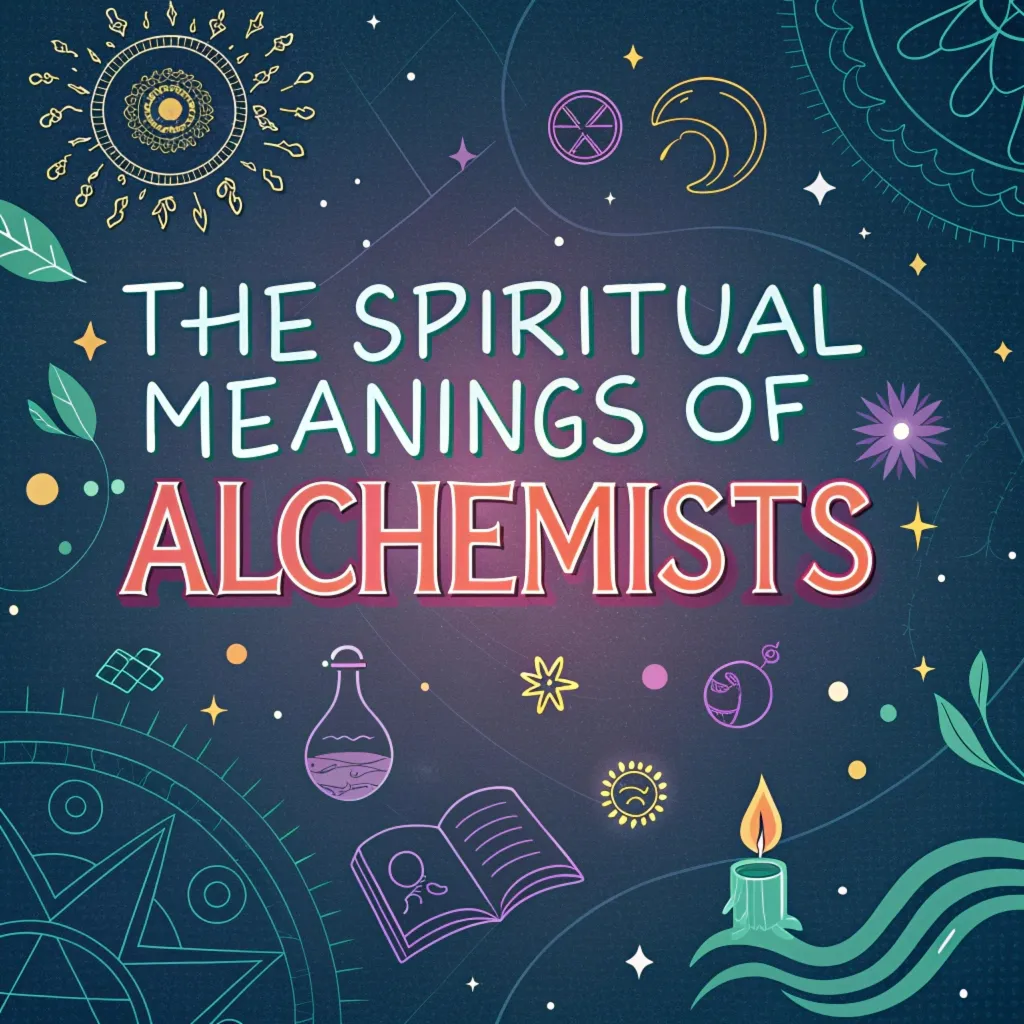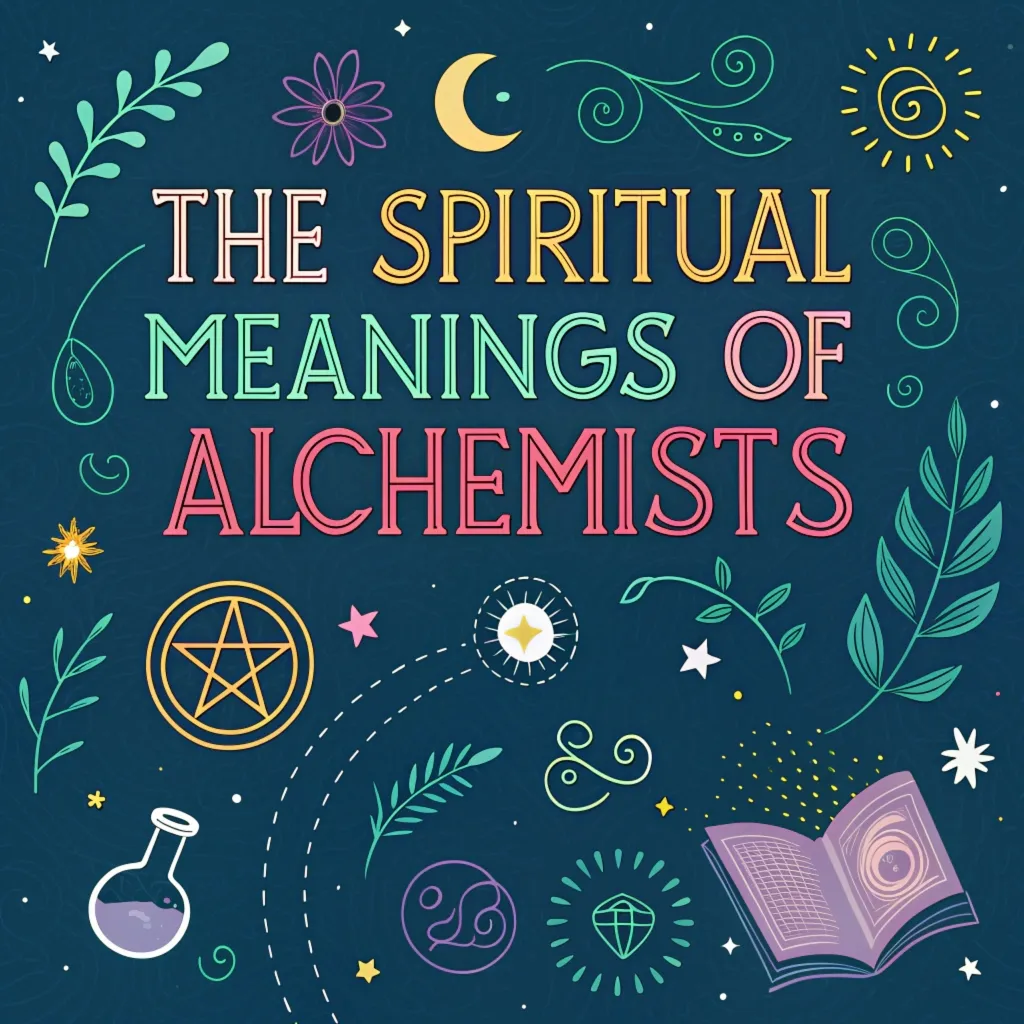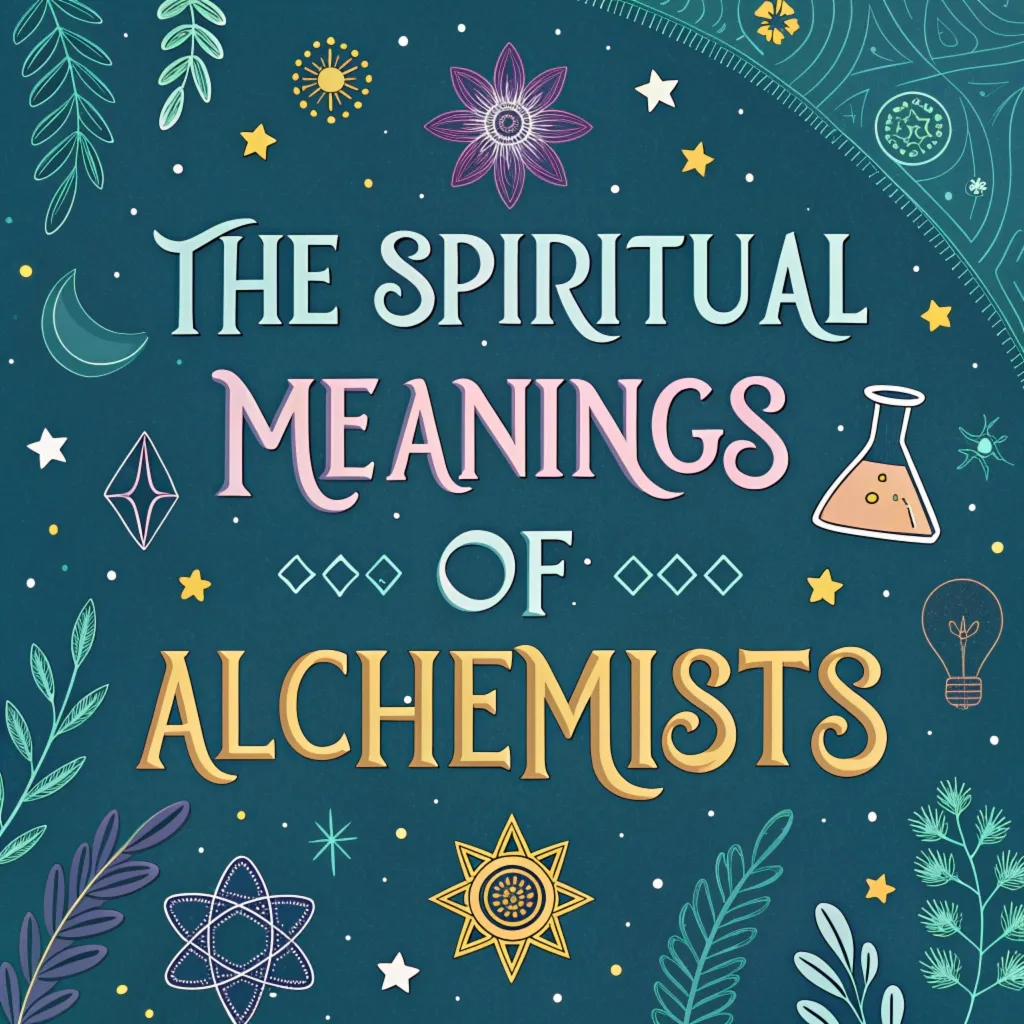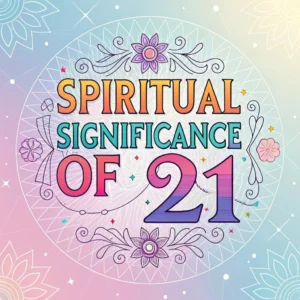Alchemy, often misunderstood as a mere pursuit of turning base metals into gold, holds a profound spiritual significance that transcends its material origins.
The spiritual meaning of an alchemist delves deep into the realms of personal transformation, inner growth, and the quest for enlightenment.
This ancient practice, rooted in mysticism and symbolism, offers a powerful metaphor for the human journey towards self-realization and spiritual awakening.
In this exploration, we’ll uncover the hidden wisdom of spiritual alchemy and its relevance in our modern lives.
Key Takeaways

- Spiritual alchemy focuses on inner transformation rather than material gain
- The alchemist’s journey symbolizes the path to enlightenment and self-discovery
- Seven stages of spiritual alchemy represent different phases of personal growth
- Alchemical symbols serve as powerful metaphors for psychological and spiritual processes
- The goal of spiritual alchemy is to achieve wholeness and union with the divine
- Carl Jung recognized alchemy as a tool for psychological insight and individuation
- Spiritual alchemy encourages self-reflection, introspection, and shadow work
- The Philosopher’s Stone represents the ultimate state of spiritual enlightenment
- Alchemical practices can be applied to modern life for personal growth and healing
- Spiritual alchemists seek to transform common circumstances into more noble ones
The Essence of Spiritual Alchemy

Spiritual alchemy is the art of inner transformation and liberation. Unlike its material counterpart, it focuses on the transmutation of the soul rather than physical elements.
The spiritual alchemist seeks to refine their consciousness, purify their spirit, and ultimately achieve a state of enlightenment.
The journey of a spiritual alchemist is one of profound self-discovery and inner growth. It involves peeling away layers of conditioning, confronting deep-seated fears, and embracing the transformative power of consciousness.
Through this process, the alchemist learns to transmute negative emotions into positive qualities, harness the energy of their thoughts, and align themselves with the universal flow of wisdom.
This inner work leads to a heightened state of awareness and a deeper connection to the divine essence within.
The Seven Stages of Spiritual Alchemy
The alchemical process is often described in seven distinct stages, each representing a crucial step in the spiritual journey:
- Calcination: Breaking down the ego and attachments
- Dissolution: Dissolving old beliefs and perceptions
- Separation: Discerning authentic thoughts from conditioned ones
- Conjunction: Integrating unconscious and conscious aspects
- Fermentation: Embracing spiritual rebirth and transformation
- Distillation: Purifying and refining one’s essence
- Coagulation: Achieving unity between inner and outer worlds
These seven stages of spiritual alchemy offer a roadmap for personal transformation. Each stage presents unique challenges and opportunities for growth.
As the alchemist progresses through these stages, they shed old patterns, gain new insights, and cultivate a deeper understanding of themselves and the world around them.
The journey is not linear but cyclical, with the alchemist often revisiting stages as they spiral upward in their spiritual evolution.
This process demands patience, perseverance, and a willingness to face the unknown.

Alchemical Symbols and Their Spiritual Significance
Alchemy is rich in symbolism, with each element representing a deeper spiritual truth:
- Gold: Represents perfection, enlightenment, and divine consciousness
- Lead: Symbolizes the unrefined self, ego, and base desires
- Materia Prima: The primordial substance from which all creation emerges
- Philosopher’s Stone: The ultimate goal of spiritual transformation
The rich tapestry of alchemical symbols serves as a language of the soul. These symbols act as bridges between the conscious and unconscious mind, unlocking deeper layers of understanding.
Carl Jung and the Psychology of Alchemy
Carl Jung, the renowned psychiatrist, recognized alchemy as a powerful metaphor for psychological growth.
He observed that alchemical symbols often appeared in his patients’ dreams, revealing deep unconscious processes.
Jung’s exploration of alchemy revolutionized our understanding of the human psyche. He saw in alchemical processes a mirror of the individuation journey – the path to becoming one’s true self.
Jung recognized that the symbols and stages of alchemy corresponded closely with psychological development.
This insight opened new avenues for therapy and self-understanding, providing a rich framework for exploring the depths of the unconscious mind.
Jung’s work continues to inspire modern psychologists and spiritual seekers alike.

Practical Applications of Spiritual Alchemy
Modern spiritual alchemists apply these ancient principles to everyday life:
- Self-reflection: Regularly examining one’s thoughts and behaviors
- Shadow work: Confronting and integrating repressed aspects of the self
- Meditation: Cultivating inner stillness and awareness
- Intentional living: Aligning actions with higher spiritual goals
The wisdom of spiritual alchemy can be applied to various aspects of modern life. By adopting alchemical principles, individuals can transform their daily experiences into opportunities for growth and self-discovery.
This might involve practicing mindfulness to transmute negative thoughts, engaging in creative pursuits as a form of spiritual expression, or cultivating relationships as a crucible for personal development.
The key is to approach life with an alchemist’s mindset, seeing every challenge as an opportunity for transformation and every interaction as a chance to refine one’s inner gold.
The Alchemist’s Mindset
Adopting the mindset of a spiritual alchemist involves:
- Embracing change as a catalyst for growth
- Seeing challenges as opportunities for transformation
- Cultivating patience in the face of slow progress
- Maintaining faith in the alchemical process
The alchemist’s mindset is a powerful tool for navigating life’s complexities. It involves a fundamental shift in perception, where every experience becomes an opportunity for growth and transformation.
This mindset encourages individuals to embrace change rather than resist it, to see challenges as stepping stones rather than obstacles.
By cultivating patience and maintaining faith in the process, the spiritual alchemist learns to trust in the unfolding of their journey, even when progress seems slow or difficult.
This perspective fosters resilience, creativity, and a deep sense of purpose in everyday life.
Alchemy and Personal Relationships
Spiritual alchemy can profoundly impact our interactions with others:
- Transforming conflicts into opportunities for understanding
- Purifying intentions in communication and actions
- Cultivating compassion through recognizing our shared humanity
The principles of spiritual alchemy can revolutionize our approach to relationships. By viewing interactions through an alchemical lens, we can transform conflicts into opportunities for deeper understanding and growth.
This involves recognizing that each person we encounter is on their own alchemical journey, facing their own challenges and transformations.
By approaching relationships with compassion and a willingness to see beyond surface-level interactions, we can create more meaningful connections and foster mutual growth.
The alchemical process in relationships involves purifying our intentions, transmuting negative emotions, and cultivating a deeper sense of empathy and understanding.

The Role of Nature in Spiritual Alchemy
Many alchemists find inspiration and guidance in the natural world:
- Observing cycles of growth and decay
- Learning from elemental forces (earth, air, fire, water)
- Connecting with the wisdom of plants and animals
Nature serves as a profound teacher in the alchemical journey. The natural world offers endless metaphors and lessons for spiritual transformation.
By observing the cycles of growth, decay, and rebirth in nature, alchemists can gain insights into their own processes of change and renewal.
The elemental forces – earth, air, fire, and water – correspond to different aspects of our psyche and can be worked with to balance and harmonize our inner world.
Connecting with the wisdom of plants and animals can open new channels of intuition and understanding, reminding us of our place within the greater web of life.
Alchemy and Creativity
The alchemical process can ignite creative potential:
- Transmuting raw ideas into refined artistic expressions
- Breaking through creative blocks by embracing transformation
- Infusing work with deeper spiritual meaning
Creativity and alchemy share a profound connection. Both involve the transformation of raw material – whether ideas, emotions, or experiences – into something new and meaningful.
The alchemical process can serve as a powerful metaphor for the creative journey, inspiring artists to embrace the stages of transformation in their work.
By viewing creative blocks as opportunities for transmutation, artists can tap into new sources of inspiration and expression.
The alchemical mindset encourages creators to infuse their work with deeper spiritual meaning, transforming not just their art but themselves in the process.
The Ultimate Goal: Spiritual Gold
The true aim of spiritual alchemy is to achieve a state of inner gold:
- Realizing one’s divine nature
- Attaining wisdom and spiritual maturity
- Embodying love and compassion in daily life
The quest for spiritual gold represents the ultimate goal of the alchemical journey. This inner gold is not a physical substance, but a state of being characterized by wisdom, compassion, and a deep connection to one’s divine nature.
Achieving this state involves a lifelong process of refinement and transformation. It requires the alchemist to face their shadows, transmute their base qualities, and cultivate the highest aspects of their nature.
As the alchemist progresses on this path, they begin to embody love and compassion more fully in their daily life, becoming a living example of the transformative power of spiritual alchemy.
FAQs
What is the main goal of spiritual alchemy?
The primary aim of spiritual alchemy is to transform the soul, purifying and elevating consciousness to achieve a state of enlightenment or union with the divine.
How does spiritual alchemy differ from material alchemy?
While material alchemy seeks to transmute physical substances, spiritual alchemy focuses on the inner transformation of the individual’s psyche and spirit.
Can anyone practice spiritual alchemy?
Yes, spiritual alchemy is a path open to anyone willing to engage in self-reflection, personal growth, and inner transformation.
What tools do spiritual alchemists use?
Spiritual alchemists employ various tools such as meditation, journaling, dream work, symbolism, and intentional living practices to facilitate their inner transformation.
How long does the spiritual alchemical process take?
The spiritual alchemical journey is ongoing and unique to each individual. It’s a lifelong process of growth and transformation rather than a destination to be reached.
Is spiritual alchemy related to any specific religion?
While spiritual alchemy draws from various mystical traditions, it is not tied to any specific religion and can be practiced alongside various belief systems.

Hello, I’m Zephyra, your guide at SpiritualityEssence.com. I’m passionate about uncovering life’s mysteries and sharing transformative insights. Let’s explore mindfulness, ancient rituals, and the path to a more awakened life together. Join me on this spiritual journey!
















